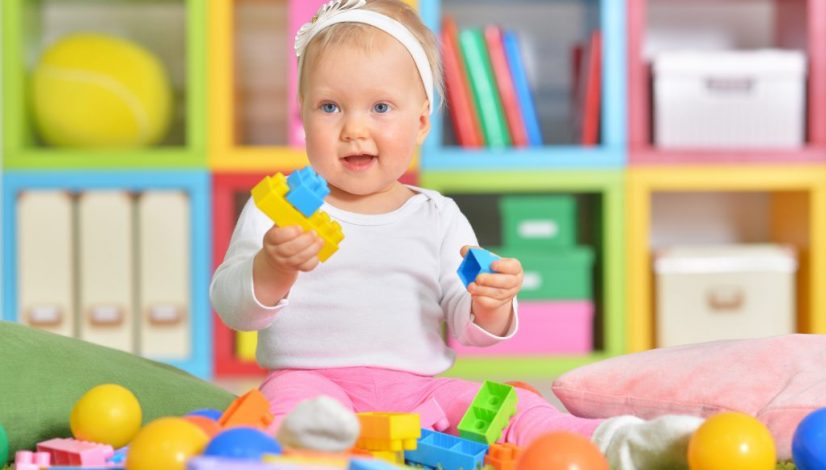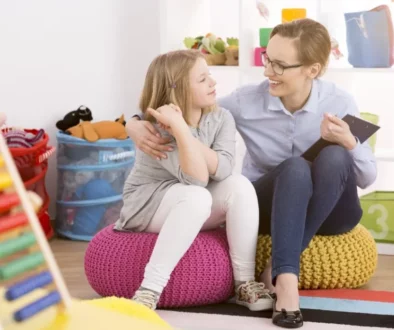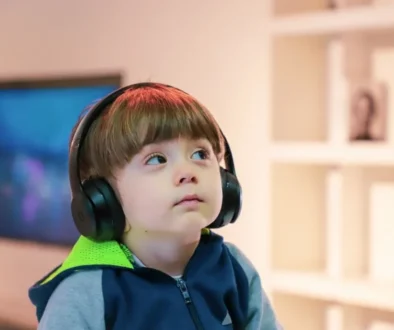10 Early Autism Signs to Look Out For
There’s one thing all parents can agree on – wanting happy and healthy children. But sometimes the path to happy and healthy has a few bumps along the way. Like an autism spectrum disorder diagnosis. Children under the age of 5 can display signs and symptoms of early autism. If you have noticed developmental issues or concerning behavior, you may consider testing your child for autism.
Read this article to learn about the signs of early autism and the actions you can take.
Signs of Early Autism
All infants and children develop at different speeds. And just because your child isn’t walking and talking by 12 months it doesn’t necessarily mean you need to be concerned. Developmental differences associated with autism spectrum disorder (ASD) are not exclusive to children with autism but can help professionals diagnose the condition.
If you notice any of the following signs or symptoms, consider scheduling an evaluation for your child. Developmental Pediatrics has been helping children and families in the state of Texas for over 2 decades.
1. Little or No Eye Contact
By 6 months of age, a typical child can make eye contact. Children with early autism may not make eye contact even when you use their name or make noises.
Additionally, you may notice that a child with early autism is less expressive. He or she may not smile, laugh, or otherwise engage with others.
2. Back-and-Forth Interactions
When playing with a 9-month-old baby you can exchange sounds, facial expressions, and smiles. Infants may try to mimic what you say or your smile. However, children with early autism will not show this same pattern. They may not babble or participate in back-and-forth interactions like peek-a-boo.
3. Delayed Speech
Children with autism may develop speech later than their peers. Some infants with autism will not speak more than a few words by the age of 2. If your child is struggling with speech development there could be a number of possible reasons so it’s important to seek testing.
4. Little Interest in Communication
Most babies will try to make sounds and use words to communicate with their parents. Children with autism do not share the same enthusiasm for communication. They generally will avoid speaking or making gestures. It can be very challenging for parents of children with autism because they may not know what their child is trying to express.
Difficulty with verbal and non-verbal communication is a common symptom of autism or Aspergers at any age but is more pronounced during childhood development.
5. Stereotypic Behavior
Stereotypic behavior is repetitive behavior including movements, sounds, or words. Stereotypic behavior usually develops around the age of 3.
Children with autism may display certain physical stereotypic behaviors like flapping their arms, tapping their feet, or twirling their fingers. They may also repeat sounds even when asked not to. Stereotypic behavior is common among children with autism however even children with typical development can show stereotypic behaviors which is why evaluations and testing are necessary.
6. Sensitivity
Children with autism may show sensitivity to light, sound, smells, and textures. They may be anxious to try new foods or eat foods with certain textures. Children with autism may not seek hugs, kisses, or snuggles from their parents as other children do.
7. Prefers a Routine
Kids with autism may have a difficult time with changing situations. They are often upset when plans change or their routine is disrupted. They may also have a hard time going from one activity to another. This behavior pattern is more common among children ages 3 to 5 years old.
8. Limited Interests
It’s common for children to express interest in many different things. One day they love baseball and the next day they love dinosaurs. But children with autism often become hyper-focused on one interest. They might show exclusive interest in bugs or trains and show little interest in anything else.
9. Playing with Toys Differently
You may notice that children with autism play with toys differently than their peers. For example, a typical child might play with a toy truck by rolling it across the ground as if it’s driving. But a child with autism may only play with one of the wheels of the truck, spinning it over and over without regard for the rest of the toy.
10. Less Social
Babies, toddlers, and children are usually fascinated by other kids around their age. They will smile, point, or make sounds towards peers. Children with autism tend to be less social and show less interest in other kids around them.
Early Autism Testing
If your child is displaying some or all of the signs above, you may consider scheduling an evaluation. Unlike other disorders, there is no blood test, MRI, or other definitive testing mechanism for autism. Instead, an autism diagnosis is dependent on a series of evaluations.
Developmental Pediatrics has a unique process to evaluate children that may have autism spectrum disorder. The process consists of 4 appointments.
The first appointment is conducted via teleconference. Telemedicine allows parents to connect with a specialist without leaving home. During this visit, parents are asked to complete the Modified Checklist for Autism in Toddlers, Revised (M-CHAT-R). The M-CHAT-R is a 20 question screener that asks about many of the signs listed above.
The second appointment is also completed over teleconference. Parents complete the Vineland 3 Adaptive test which is a tool to diagnose intellectual and developmental disabilities.
The third visit includes further testing including the Autism Diagnostic Observation Scale. And the final visit is focused on results and diagnosis. Parents can ask questions and get advice regarding support services. Sometimes additional testing is needed beyond the fourth appointment.
Helping Your Child Thrive
Children develop differently and that’s okay! As a parent, the best thing you can do is be aware of some of these signs of early autism and seek services if necessary. Early intervention can help children develop social and communication skills.
If you have questions about autism evaluation or you want to schedule an appointment with Developmental Pediatrics in Texas, contact us today.



